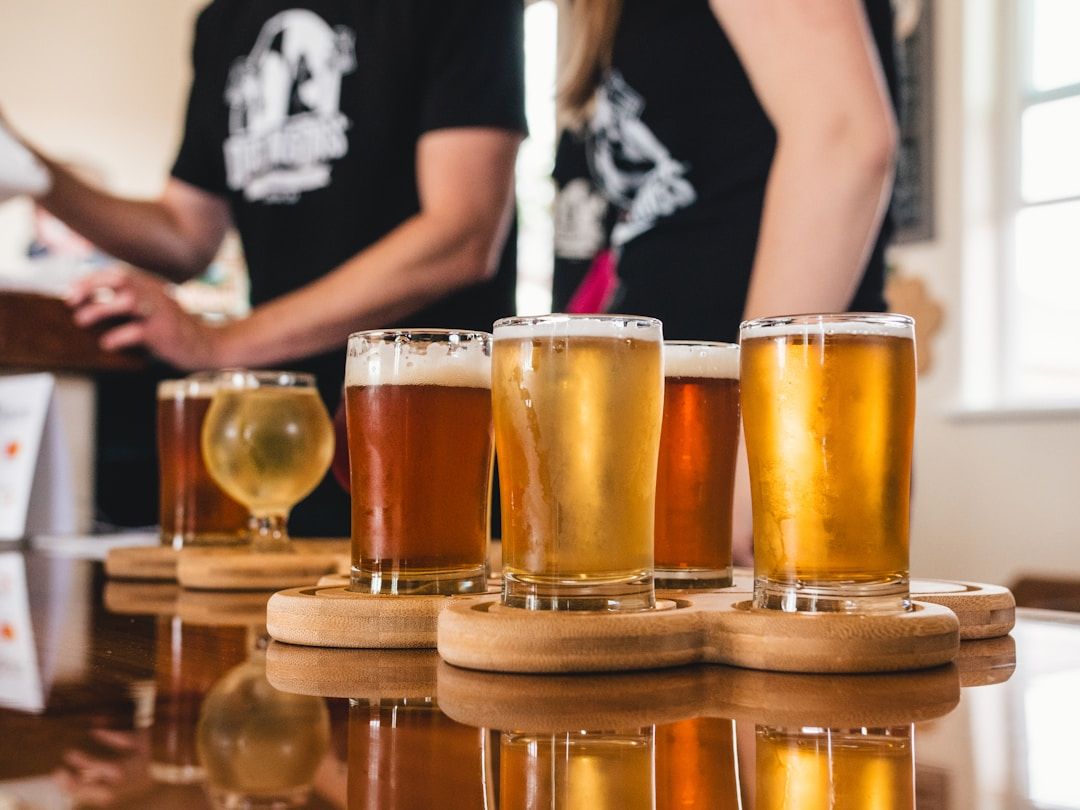Growing up in a village in the South-West of England in the 1980's, I had a fairly idyllic childhood. Yet, I was a quiet child, that didn't speak about their feelings which lead to feelings of loneliness and disconnectedness. In the tender age of twelve, I started using alcohol as escape from the struggles of adolescence. The following years were marked by a relentless pursuit of parties and thinking about how to get booze, all while deepening my depression that I couldn't articulate.
But by seventeen, I was drinking alone and at crisis point. Struggling secretly, I planned my first suicide attempt. But I fought my way through and completed my A-Levels, still trapped by my inability to identify or verbalise my distress. I just knew that qualifications were my opportunity to escape.
In 2000, age eighteen, I moved to East London to attend the Metropolitan University’s Communications and Audio Visual Production course. But after a few months of drinking and hangovers, I stopped attending university. Instead, I found a bar job, which I loved. I made friends, worked hard, partied hard, and felt like I belonged somewhere.
Quickly, however, I found myself in the cycle of drinking every evening and passing out anywhere from a corner in a pub, on the tube, or on the street. Regularly, I woke up somewhere I had no idea where I was and had to take myself home for a quick shower and then back to work amid a mighty hangover fog.
I’d make it through the day, but after pouring beer for hours, and in an attempt to hide from my problems, I’d finish with “a few” pints after work again — the beer and a sense of belonging with my colleagues being the only things that made me feel good. Being surrounded by alcohol normalized daily drinking. I thought it’s what everyone did, especially at my age. The lifestyle came with its dangers, though. Over ten years, I was raped multiple times and found myself in countless situations where I didn’t know what I was doing or who I was doing it with. I felt utterly trapped in a cycle of self-hatred and attempts to alleviate the shame with more drink every day.
But throughout this period in my life, I was actually very high-functioning. Known as the “drinker’s double life,” functioning alcoholics often have steady careers, disposable incomes and positive relationships while they hide the seriousness of their alcoholism from those close to them.
I ran my first pub when I was twenty-five. Working for a large London brewery, I climbed from bar server to general manager through extensive management progression training. I learnt about profit and loss, licensing and legislation, stock control, recruitment, training and disciplinaries, kitchen hygiene, and cellar work. But I never learned about responsible drinking, managing stress and mental health, or interventions or prevention programmes for staff who may develop drinking problems.
The pub was trading well and I was making good bonuses. So, after paying rent and bills, I still had a significant disposable income to spend on more booze. Friends and family could always rely on me to be up for a drink and a good time. Often, they witnessed me having too much, perhaps passing out somewhere or falling over. Besides that, hidden to many, I was struggling with severe depression and drinking daily to deal with it.
Monthly area meetings were always in one of our pubs, with drinks on a company credit card afterwards. Then a few months into my role, I was given the additional title of Ale Champion, as the only manager in the area enthusiastic about cask ale. This role allowed me one day each month out of my pub to taste and learn about beer at beer festivals or at the brewery. I was literally being paid to drink.
Over time, the murky underbelly of my life grew bigger, infiltrating me like a poisonous gas. I was suffocating. Backed into the last remaining corner, it became too hard to hide from the shame and it became impossible to keep the smile on. Consequently, I became suicidal again as I was desperate to escape the exhausting cycle of pretence and remorse.
Attempting to get a grip on my drinking, I often told myself in the morning that I wouldn’t drink that day. But, after spending hours pouring pints, towards the end of my shift, I would have a few with regulars who were my age and who I considered my friends. It felt completely normal to spend my evenings off this way. Of course, as an alcoholic, I wasn’t able to stop at one or two and this led to several drinks before stumbling home.
The next few years saw a few mental health crises and leaving jobs to escape my increasingly intolerable headspace — twice leaving the UK to escape. I kept running until I was thirty-five. Eventually, though, I gave up pub work and finally gave up drinking. I’m now six years sober.
Working in pubs did not make me an alcoholic, and my experiences are extreme. It did, however, facilitate and enable my alcoholism.

In April this year, I contacted eleven of the biggest UK pub companies to inquire whether there were any policies in place for safeguarding staff and whether they had any interventions for when it had gotten too far. Only two replied. Since 2001, when I started my first bar job, there has been no improvement at all.
I would really like to see businesses in the hospitality industry introduce alcohol policies for staff. These policies should outline clear procedures for when someone is concerned about their own or a colleague's alcohol use. I would suggest, in the first instance, a supportive meeting to discuss alcohol use, mental health and personal life, and then signposting of appropriate services and an offer of free counselling. Further supportive meetings should then be arranged at agreed periods with agreed outcomes and progress tracking. When I worked in a pub I didn't want to give up alcohol. But it would have definitely helped me if I hadn't been able to get away with getting smashed at work and waking up on the pub floor the next day so regularly. If I had been referred to a support structure within the company it could have started my recovery journey earlier.
Staff training for every role in the business should incorporate dangers of alcohol and the policy and procedures. Perhaps an alcohol misuse champion in the company who could also be trained in mental health first aid and be an expert in alcohol addiction services. All of this will increase awareness which should help staff notice when alcohol use becomes dangerous in their colleagues.
The good news, though, is that there is some movement among smaller companies. I recently met with Dru from Club Soda, a small organization committed to helping people drink more mindfully and live better by promoting low and alcohol-free drinks, providing courses and workshops, and creating a community through alcohol-free events. Club Soda works with The Drinks Trust, a charity dedicated to the drinks and hospitality workforce. They offer a service for businesses that can’t provide an Employee Assistance Programme due to the size of their company, and it is the smaller businesses that are most receptive to safeguarding their staff. Alessandra, from The Drinks Trust, told me, their free service for hospitality professionals was set up to benefit staff wellbeing, and their work with Club Soda has already helped thousands of people change their relationship with alcohol.
The team at Bristol Beer Factory are also doing great things. Clear Head, their 0.5% IPA, is only two years old and is now their second biggest seller and climbing. I contacted Tom Clermont, Head of Sales, who reported that they invest more time and money into promoting Clear Head than any other product. The beer was brewed with their primary charity partner, Talk Club, a Bristol-based Mental Fitness Charity for men. Five percent of every bottle or pint sold goes directly to keeping Talk Club sustainable through regular cash donations to keep building a community of positivity and mental fitness. They have given over £31,000 so far at the time of writing.
For me personally, alcohol-free beers have been a huge help in my sobriety. Being able to meet friends in a pub and not feel like I'm the odd one out has been really valuable. I also threw myself into finding new hobbies to form a new identity. I've tried many things from archery, drawing and whitewater kayaking, but have settled now on mountain biking and writing as my main ones. But ultimately therapy has been the biggest help of all.
I don’t blame the pub industry for my alcohol addiction. This was well-developed on its own. But it’s been on reflection that perhaps pub companies need to take some responsibility for their employees. People who are attracted to working in pubs are often enthusiastic drinkers, making them susceptible to the progressive nature of regular heavy drinking, which is entwined in the culture. Companies and organisations like Club Soda, The Drinks Trust, Healthy Hospo and Bristol Beer Factory are paving the way for culture change. Others need to follow.
The next steps are to implement company policies for prevention and processes for alcohol responsibility and awareness among staff. Interventions should also be planned for when an employee’s alcohol intake tips from social to dependent drinking. Hopefully, one day the big pub companies, who employ over 450,000 people in the UK, will follow the smaller organisations and breweries, and take some responsibility as well.
If you are you unsure if your colleagues or friends might have an alcohol problem be aware of signs to look out for, especially changes in behaviour. Offer a space to listen and keep checking in on them. Don't be afraid of asking direct questions about whether that person might have an alcohol problem or mental health challenges.



